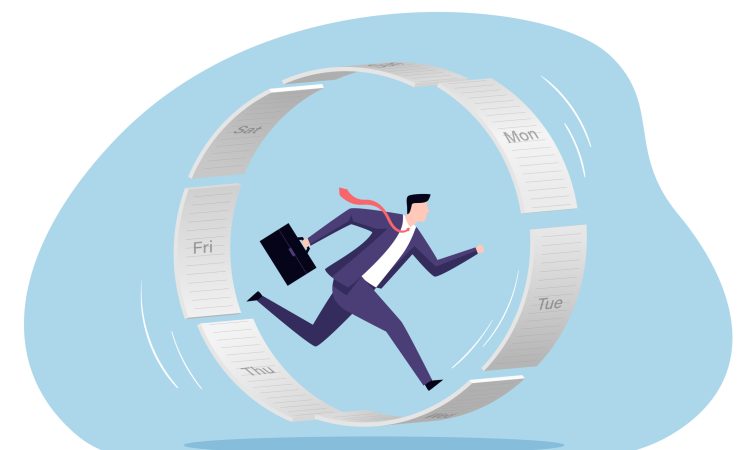|
Getting your Trinity Audio player ready...
|
Whose fault is it when you burn out?
This is a question we ask in most of our Re-Work workshops on this topic. The first time we asked it, we were shocked by the responses: “Me.” “My own.”
People blame themselves when they burn out. They also feel a lot of shame, as if the signs of burnout – exhaustion, alienation from (work-related) activities and reduced performance – were all indications they couldn’t cut it.
They’re wrong. Burnout is not your fault. Your career shouldn’t be making you sick. Global rates of burnout are at an all-time high, with Millennials and Gen Z more likely to be impacted. In a 2024 BCG study, 48% of workers across eight countries reported experiencing burnout. This same study found that this number was halved when people felt included at work.
We call the unending cycle of feeling overwhelmed, unmotivated, exhausted and emotionally drained the burnout cycle. People burn out or overwork to the point of ill health multiple times before they stop blaming themselves and start to question the circumstances that keep leading to it.
We live and work within systems that that lead us to believe that the only path to success is one of overwork and stress. That our work, ambition, pay, titles and achievement define our value. At the same time, modern work cultures prioritize shareholder value over human needs. Demands continue to increase without considering our need for rest, play and creativity to be effective and impactful in our work.
Research shows that rest reduces stress, improves physical and mental health, enhances creativity and improves cognition. In other words, it makes you more productive. Yet, rest is looked down upon in North American culture. It’s seen as lazy and something that needs to be earned.
We have found that the only way to break the burnout cycle is to change the way you think about work and productivity.
First, you have to recognize if your relationship with work isn’t healthy and is on a path to making you sick. Then, you need to choose to embrace ideas about work that are counter to mainstream culture – to get curious and open to considering new approaches to work. The way to achieve sustainable success isn’t by working to the point of sickness; it’s to challenge ideas about rest and the role of creativity and even play in how you work.
Working to the point of sickness is what we call toxic productivity. There’s nothing wrong with wanting to be productive. But your productivity should not dictate your self-worth and sense of value. The least productive person is as important and valuable as the most. That is a hard idea for many people to wrap their heads around. Yet, this change in thinking leads you to a healthier and more fulfilling relationship with work. It enables work to be a part of your experience of life – not the centre of it.
It sounds radical, but this type of thinking actually takes you further.
Your career can either drain or sustain you.
It’s not your fault when you burn out, but there are things you can do to support yourself in working well within unsustainable systems. The first step is understanding your relationship with work, grounding in your values and approaching work from a place of seeing rest as a prerequisite to your long-term success, not a reward.
To get you started, here is a quiz to help you identify how healthy your relationship with work is.




